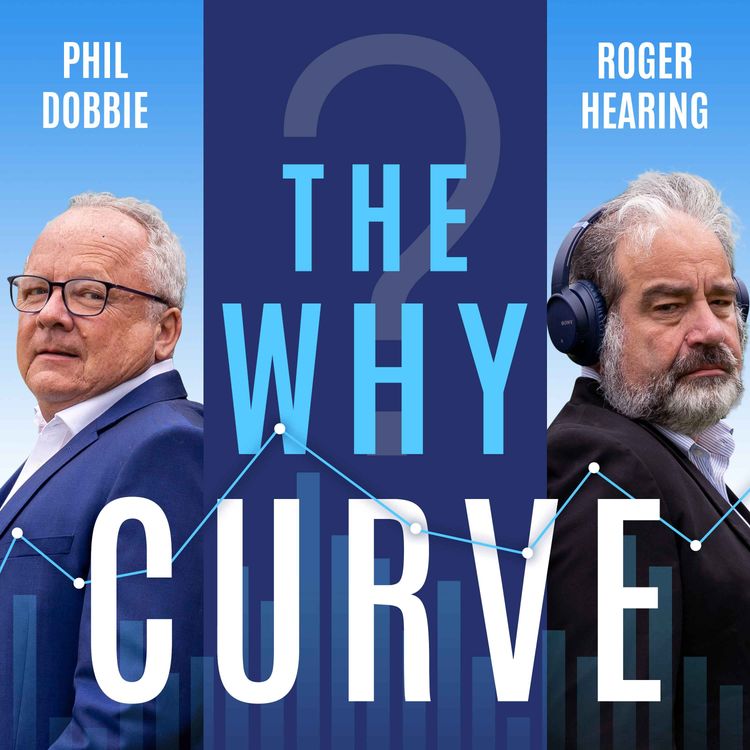Share

The Why? Curve
Who are you really? Online identity wars.
Season 1, Ep. 69
•
Should we be able to be anonymous online? If we all knew who we were, would the conversation be more civil? Would the bots and trolls be exposed for what they are? Or would it open vulnerable people to attack - dissidents pursued by hostile regimes? Would the free speech at the heart of the net disappear? Dr Catherine Flick, reader in Computing and Social Responsibility at De Montfort University tells Phil and Roger what works in trying to clean up the online world, and how hard it is to police especially with trans-national actors.
More episodes
View all episodes

188. Marriage Guidance
39:05||Season 1, Ep. 188As divorce lawyers enter their busiest season, how sustainable is modern marriage? Plenty of couples never bother to formally marry, and the rate of break-ups in those who do has been rising. Does the model of lifelong partnership, sanctioned by law, work in an era of constant choice about everything from mobile phones to relationships? Are permanent couples the happiest form of human interaction? Phil and Roger get guidance from Dr Veronica Lamarche, senior psychology lecturer at the University of Essex.
187. MAGA Movies In 2026?
35:36||Season 1, Ep. 187Is Donald Trump aiming to reshape Hollywood? His supporters are putting money into making movies that reflect the MAGA outlook - old-fashioned heroes in action films - and bury what they see as the liberal woke influence on moviegoers. The struggle between Netflix and Skydance over who will buy Warner Bros is part of that. So will 2026 be the year that cinema turned to the right? Sarah Atkinson, Professor of Screen Media at King’s College London, tells Phil and Roger what to expect
186. Anglican Agony
41:29||Season 1, Ep. 186The first Christmas for the new Archbishop of Canterbury, and the first Christmas message by a woman in that office at the head of the Anglican communion. Sarah Mullally leads a global church in crisis - over child abuse, gay marriage and diminishing congregations. Can it survive the huge divisions on doctrine and practice between the faithful in the global south, and those in the rich West? Phil and Roger ask Professor Andrew McGowan, Dean of the Divinity School at Yale University.
185. Is Starmer Stuffed?
43:42||Season 1, Ep. 185Just eighteen months after a massive electoral victory, the man who leads the Labour party and the country seems to be unable to govern effectively, and it's widely assumed he will be replaced in 2026. Sir Keir Starmer has some of the worst poll ratings in modern political history, and few of his MPs want him to stay prime minister, but who will replace him? When, and how? And what chance will they have of dealing with the country's myriad problems? Robert Ford, Professor of Political Science at Manchester University, tells Phil and Roger what lies ahead for the Labour Party and British politics.
184. What's happening in Gaza
38:58||Season 1, Ep. 184Two months after the ceasefire came in to effect, what's happened in the Gaza Strip? As the world's attention moves away, how are the two million Palestinians there coping, without shelter and with little food and medical care? Do the regular reports of Israeli airstrikes signal a fracturing peace? And who is in charge? The second stage of the peace plan is supposed to come into effect in a few weeks - but what will that amount to for the future of Gaza and its people? Simon Mabon, Professor of Politics at Lancaster University, rejoins Phil and Roger with the latest on the prospects for avoiding further conflict.
183. Can we afford the welfare state?
42:51||Season 1, Ep. 183With growing numbers of claimants for benefits, pensions and social care, and little sign of growth in the economy, how can we balance the books? Has the whole idea of supporting every member of society ‘from the cradle to the grave’ been superseded by financial conditions? Or is it just a matter of raising more taxes from the richest in society, following the Scandinavian pattern? Phil and Roger ask Peter Starke, Professor of Political Science and Public Management at the University of Southern Denmark.
182. Are We Already At Hybrid War With Russia?
36:33||Season 1, Ep. 182Hacks of major parts of the UK economy, drones putting European airports out of action, a British politician convicted of taking bribes - does Russia's campaign of influence and disruption amount to hybrid warfare against the West? Is there any way to tackle it effectively inside liberal democracies? And is it the precursor to a real conflict? Phil and Roger discuss this with Christian Kaunert, Professor of Policing and Security at the University of South Wales
181. BBC - Yet Another Crisis
38:17||Season 1, Ep. 181Why is the BBC in semi-permanent crisis? Is there a way the premier national and international broadcaster can escape a cycle of scandal and resignations? After more than a century, does it need to revisit what it is for, and how it is funded? And, in an age of streaming and citizen journalism, is there still a point to having the BBC? Phil and Roger ask Simon Potter, Professor of Modern History at Bristol University, and author of the centenary history "This Is The BBC"
180. Holding Out For a Hero
37:49||Season 1, Ep. 180Everyday heroes - what is it that makes some people put themselves in harm's way to save others, while most of us flee from danger? The recent events on a train at Huntingdon - in which a railway employee appears to have suffered terrible injuries by putting himself in front of a man wielding knife - suggest there are those who choose, in a moment of crisis, to put their lives at risk. Why do they do that? Would YOU fight, or would you flee? Phil and Roger examine the psychology behind heroism with Frank McAndrew, Emeritus Professor of Psychology at Knox College in Illinois